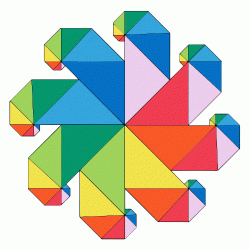Note, for more information, also read this page on Integral Somatic Psychology
I want to talk about painful emotions that are stored in our bodies:
When, at a very young age, we experience danger, fear, a lack of safety, not being able to connect and be comforted by a caregiver, not having basic needs met, or other significant stresses or traumas, in those various circumstances it all becomes too much for our little bodies and nervous systems, and a few things can happen.
First of all, as a tiny young person, I push the bad feelings away, I hide the pain from myself through contracting my muscles or my viscera or my nervous system, or through leaving my body or through shutting down my core energy so I don’t feel anything.
Then, unless there is a significant resolution to the situation that includes being seen, understood, reassured, and comforted, those patterns of contraction and disconnection persist throughout my life.
Second, I disconnect from one or more basic needs and desires. If I am hungry I tell myself I don’t need food. If I am lonely, I tell myself I don’t need love. And so on. I make myself believe that in some special way, I am immune from needing what all humans need.
And again, if there is not some profound resolution, this disconnection from my needs will persist throughout my life.
Third, because I am blocking the experience of painful emotions, whenever a new threat or loss or painful experience occurs, I can’t fully feel that new experience, I can’t hold the feelings in my body, Which is required for the loss to be processed. So each new painful experience just adds to the hidden emotional burden that I carry around in my life.
As humans with unresolved past stress and trauma, this is where we are stuck or struggling.
We are hiding and distancing difficult emotions from ourselves and in so doing we are preventing ourselves from being fully alive and healthy.
And part of the picture is that we keep hidden from ourselves even the basic fact that we are hiding things from ourselves. There are multiple layers of hiding pain from ourselves.
For some of us, our hidden feelings are so intense that they cause visible symptoms such as depression, anxiety, addiction, or an inability to trust the people around us. We might also have physical or medical symptoms such as chronic fatigue, migraine, or unexplained muscle pain.
Sometimes we do feel the feelings, overwhelming fear, terror, rage, grief or shame. The feeling tells us that our life in the present is terribly problematic and we feel like there is nothing we can do about it. In reality, the intense emotion is actually from the past, and nothing we do related to our present circumstances can heal or soothe the intense and painful discomfort.
For people whose unresolved traumas are less severe, they may be making their way through life truly believing that they are totally fine, not knowing that they are hiding layers of pain from themselves and thus being less than fully alive.
And back to those of us with clear symptoms or overt emotions, even though we have irrefutable proof that something is wrong, the very way that these emotional defenses are set up means that we will always minimize or obscure the reality of what we are feeling and hiding. Even when I know that I am holding hidden pain, I underestimate how much pain is there, I underestimate how much that pain is affecting me, and I misinterpret the meaning and causes of the pain.
In fact, many times, the people in our lives can see much more clearly than we can how much we are “off”, and sometimes they try to tell us. But we don’t believe our friends and beloveds when they tell us that we are more dysfunctional than we know. We can see how much that person is “off” so we just conclude that their dysfunctions are causing them to not see us accurately.
How do we heal ourselves when we are actively and aggressively hiding from ourselves either the very fact that we even need healing or the scope of how much healing we need?
The key to finding our way to greater aliveness and ease is through the practice of emotional embodiment. What does this mean? It means finding an unpleasant emotional experience in my body and allowing myself to feel it, not just in one small way or in one limited part of my body, but allowing myself to feel the bad feeling throughout my body.
We are designed to feel things, both negative and positive, throughout our entire body. Think of an infant in a safe enough family and how that infant can move from one feeling to another, and how alive they are in each feeling.
We need to increase our capacity for feeling difficult feelings, to become more like those infants, fully emotionally embodied and fully alive. Of course, unlike the infants, we will retain our adult capacity to choose the timing and nature of our expressions of emotion, making appropriate behavioral choices.
As I increase my capacity for feeling difficult feelings, all of the following wonderful things happen:
First, now, when something difficult happens to me in my life, I can feel it and process it right away. Grief or loss or shock at current events will still take some time to process, but I will be able to be present with what I am feeling and I will be able to make it through to the other side of this current pain.
Second, the old pain from my past, possibly from when I was just a tiny child, can be felt out in the open, so I no longer have hidden emotions nagging at me, causing depression or anxiety or other symptoms. As an adult I can come to realize that the pain is no longer too much, even when it is still intense and feels like too much. I realize I can hold this and I can be ok. And then the feelings lose their hold on me, they become tolerable.
Third, my body and nervous system are no longer contracted and contorted in the various ways they have been constricted throughout my life. So now, not only can the emotions flow, but my basic body systems can work as designed, and I am likely to find at least some level of relief from various chronic health problems.
Fourth, I can now have free and full access to my life force. I can have hope, joy, passion, and vision. I can be free to live.
Fifth, because I now have the capacity to hold difficult emotions, I can now effectively hold space for other people who are suffering and struggling, and my ability to be calmly and lovingly present can provide a healing refuge for the people in my life whom I care about and love.
Sixth, I can be more available in my relationships, so my relationships will have less pain and conflict, and the conflicts that do arise can be more easily resolved.
So our intention in practicing emotional embodiment, either with an trained ISP facilitator or on our own, possibly using the recorded process on the resources page, is to increase our capacity for experiencing difficult emotions, both from the present and the past, both emotions in ourselves and those that other people are carrying.
We create this capacity by making contact with the difficult emotions that are already inside of each of us. In this process, we will identify one specific emotion, one difficult feeling, that we know is there, and we will invite the experience of that difficult feeling into various parts of our body and into our body as a whole. And even if we can’t feel it everywhere, just doing the work tends to help to increase our capacity for difficult emotions and tends to provide some incremental relief and positive movement.

